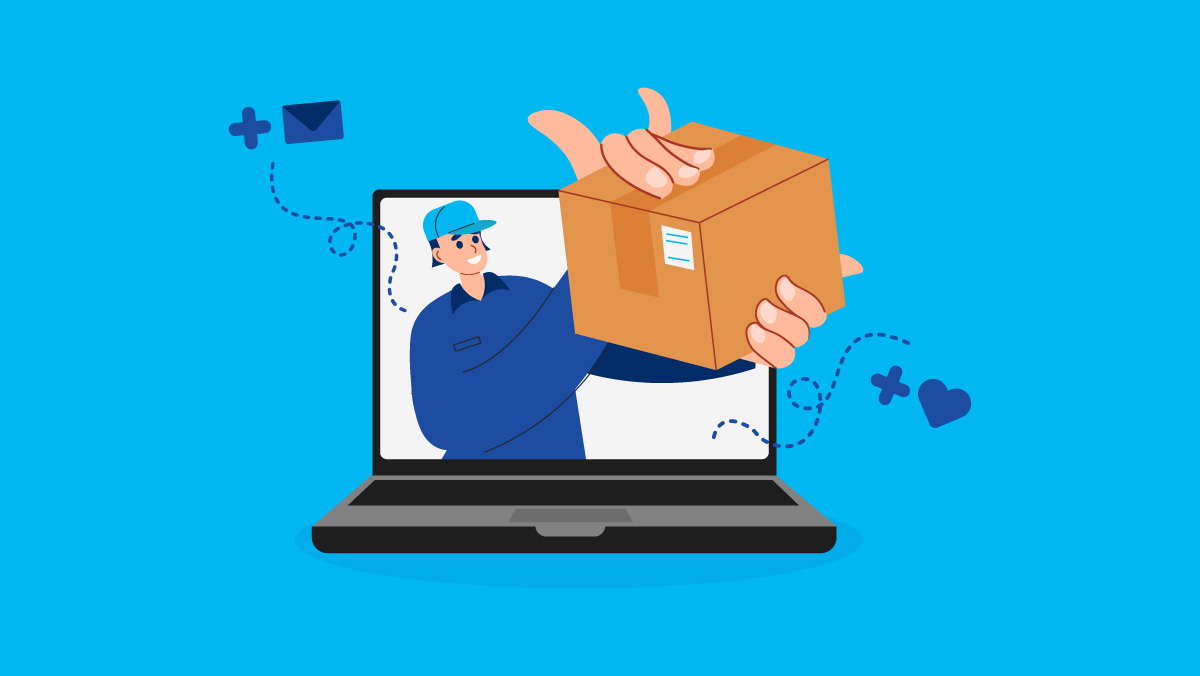Image Source: iStock/Anna Beletskaya
Did your remote employee go AWOL after resigning? Yikes! Wait, don’t they have your company laptop? Uh oh. We’ve all been there—waiting, praying, and hoping that the remote employee returns the company laptop with all components and data intact. But that isn’t always the case—and that’s exactly why skipping proper laptop retrieval should never be an option when off-boarding a remote employee.
Have you been tired of looking for a solution for your laptop retrieval and can’t decide between outsourcing the logistics or having an in-house team? We understand that making the decision can be tough, as both options have pros and cons, so we’ll try to make it easier for you.
Don’t Wait—Arrange Your Laptop Return Today!
This article will compare every aspect of the two options and help you determine which best suits your business.
Struggles of Retrieving Laptops From Remote Employees
Human representatives always get the short end of the stick when they’re assigned to retrieve laptops from remote employees. The task is not only challenging but can also reduce HR to tears.
We understand and share your pain if you’ve searched for this article with blurry eyes and a stuffed nose. It may be hard to believe, but over 75% of organizations are struggling with remote IT challenges, including laptop retrieval. So, to state the obvious, the struggle is real.
1. Unresponsive Employees
Ex-employees can sometimes act like distraught exes and ghost you.
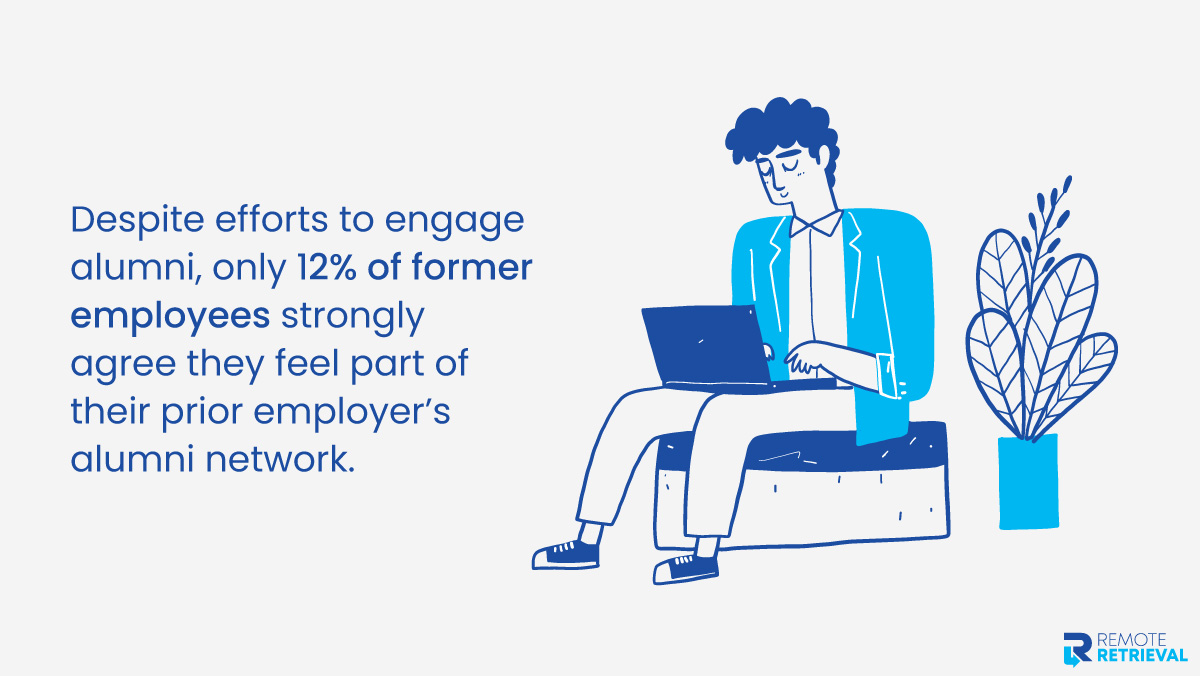
Image Source: iStock/iwat1929
They take no contact too seriously and are in the wrong relationship. Seventy percent of them even skip their exit interviews; truth be told, 17% of hybrid and remote employees are likely to steal company-owned equipment.
These employees will avoid you like the plague. It all starts with ignoring emails, to missing calls, and making up lame excuses when they actually attend the call. HR executives may lose their cool right about now.
2. Different Time Zones
Then comes what may feel like a long-distance relationship. For a company with remote employees all over the world, getting on the same page is a sight for sore eyes.
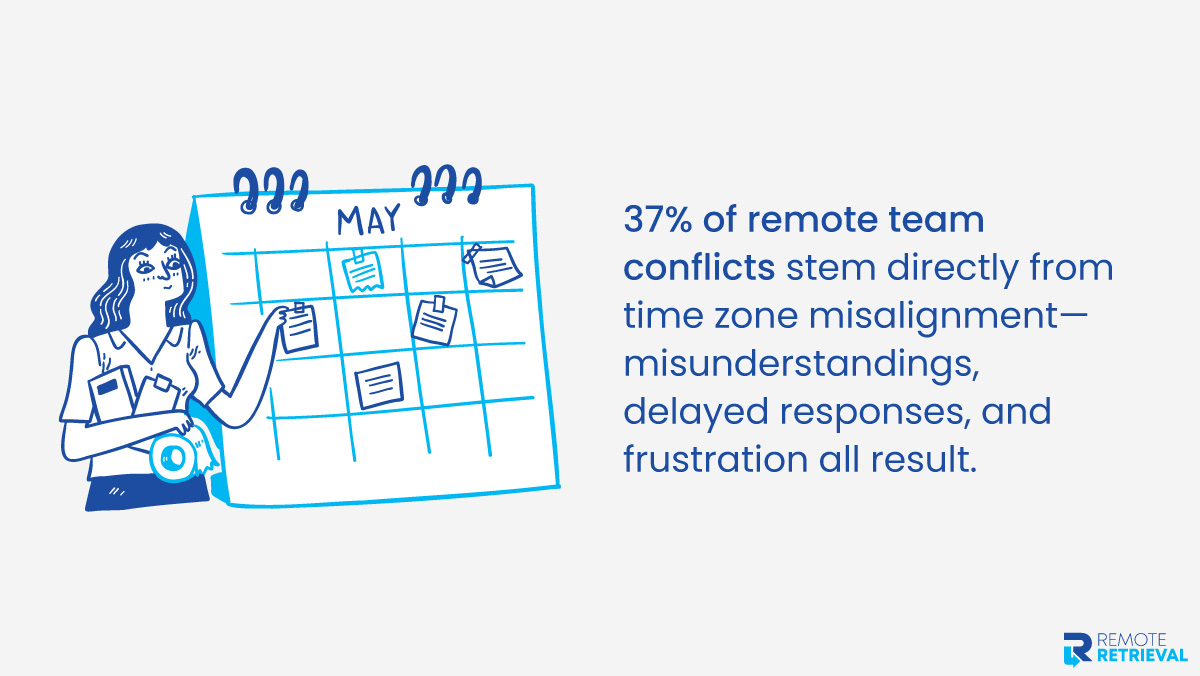
Image Source: iStock/iwat1929
You may have to run after the employees in the dead of the night and still manage to wake up for your morning shift. This cat and mouse race can leave you sleep deprived, caffeine addicted, and frustrated.
3. Weak Communication Channels
Globally remote companies often have to rely on multiple communication channels to ensure they actually get some work done.
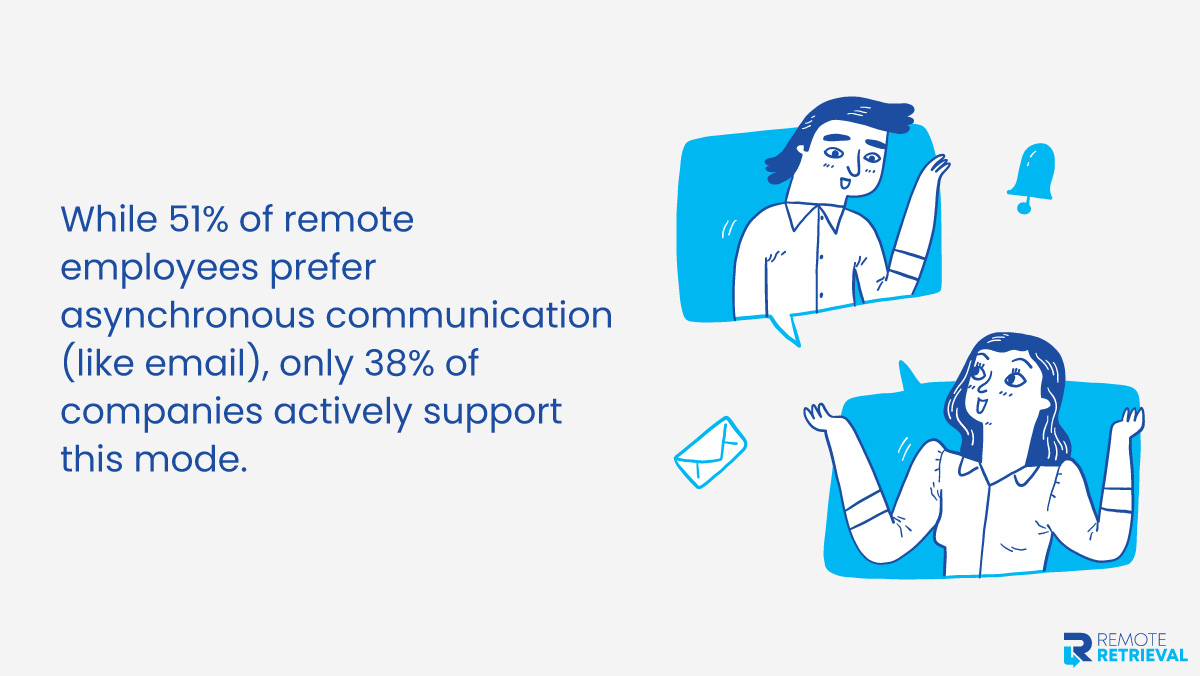
Image Source: iStock/iwat1929
Human representatives suffer the most in this situation as they often have to play a guessing game to find which employee uses which communication channel. If you’re a human resource executive, read our blog on why our services work best for you.
4. Data Security At Risk
To make matters worse, you must also ensure that company information remains safe at every stage. This can pose a great challenge as human representatives cannot keep track of devices when they are in transit or ensure that the ex-employee has no access to company data once they resign.
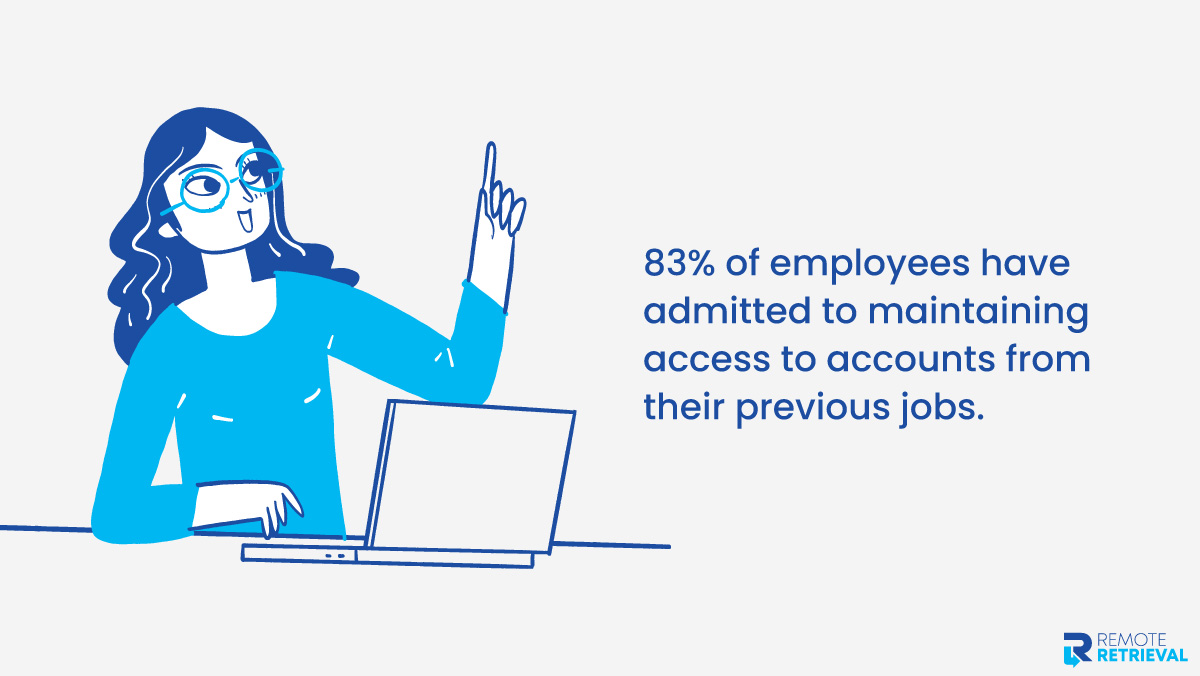
Image Source: iStock/iwat1929
According to a study by Beyond Identity, 83% of employees have admitted to maintaining access to accounts from their previous jobs. This is very alarming and the biggest contributor to data breaches.
5. Monetary Loss
When employees do not return laptops, the company has to buy a new one as a replacement, another hidden cost of unreturned company devices. The time and money spent retrieving them without success is also money wasted.
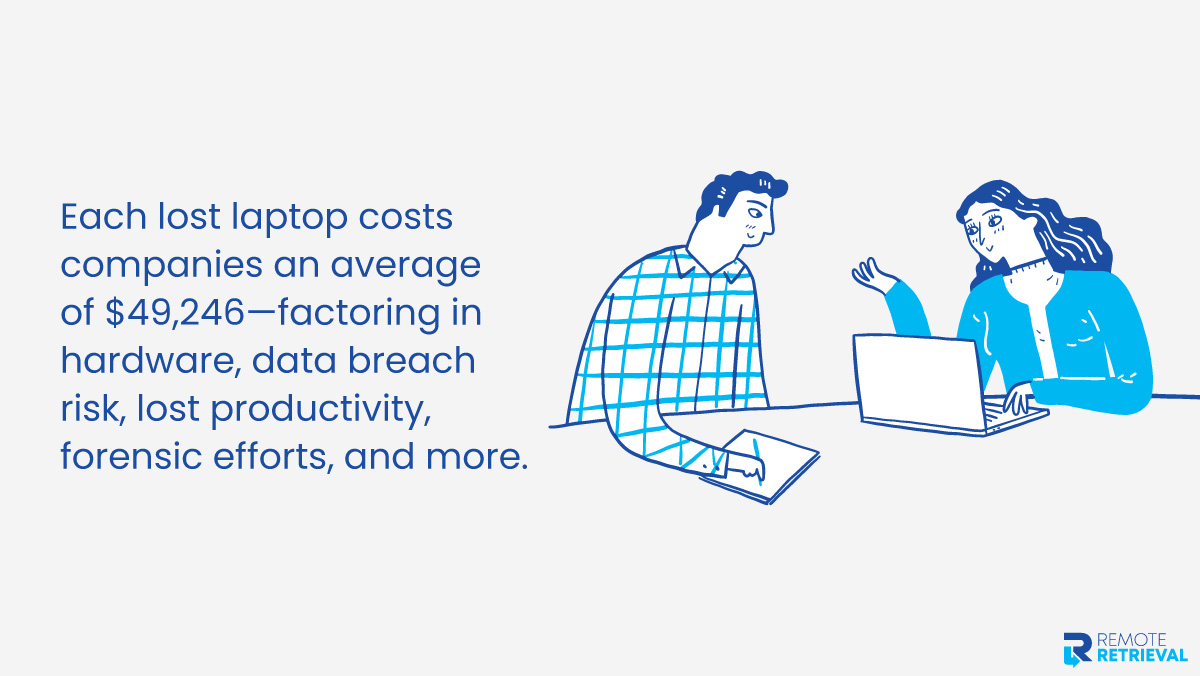
Image Source: iStock/iwat1929
All of these struggles can pile up and lead to insanity. But fret not—there are some simple solutions to help you out. You can either have an in-house logistics team that can handle laptop retrievals or outsource the job and dust off your hands.
But, in-house or outsource, what would be the better way out? Read on to find out.
In-House or Outsource: What’s the Best Way to Retrieve Laptops?
Should you hire a team dedicated to overseeing logistics or a company like Remote Retrieval to handle the laptop retrieval for you? Let’s take a look at the compelling arguments from both sides.

Image Source: iStock/iwat1929
What Does It Mean to Have In-House Logistics?
To have in-house logistics support, you need to hire a team or a single person who can oversee the retrieval process from start to finish. They will be responsible for developing retrieval policies and ensuring they are followed across departments.
Here are the core responsibilities of an in-house logistics team/individual:
-
Asset Tracking: The in-house logistics team will be responsible for tracking the device movement from one point to the next. Tracking also includes maintaining an inventory of the laptops as they come and go.
-
Employee Communication: They are also responsible for clearly communicating retrieval policies with the employees and ensuring that they follow through on the deadlines.
-
Data Security: Company laptops contain a lot of sensitive information, and logistics executives should ensure that the information is kept safe and destroyed if necessary.
-
Inspection: The in-house logistics team should conduct the initial inspection to ensure that the laptops are in good condition when they return to the company.
-
Refurbishment: If needed, the logistics department will need to redirect the laptops for refurbishment. They might even have to reinstall software or update their laptops on their own.
-
Disposal: Not all laptops that return to the company are in working condition. In that case, the in-house logistics team should dispose of the device responsibly.
-
Reporting and Compliance: Proper reports of laptop retrieval inventory must be maintained for audits or other compliance documentation.
-
Packaging: Employees may not properly pack the laptop, causing it to be damaged in transit. To prevent this, the logistics department may provide the employees with pre-packed shipping material to carefully pack their devices before sending them back.
Pros of Managing Remote Laptop Retrieval In-House
-
Cost-effective for Scalability
If you have a large company with high employee turnover, having a laptop retrieval team in-house will be more cost-effective. When you hire a third-party company, you will have to pay per device, which can add up to a large sum.
-
Quicker Laptop Retrievals
Third-party companies may take longer to retrieve your laptop than an in-house team. They can receive the laptop on time and prepare it for the next employee immediately.
-
Customization
If you have an in-house team, you can customize how they retrieve the laptop and mold it into what works best for your business. This can help improve the process’s efficiency and ensure no gaps.
-
More Control
When you outsource logistics, you lose control of your devices and the methods they choose to retrieve laptops. With an in-house team, you can monitor and change every step of the laptop retrieval cycle. With the control, you can certify that your process follows company policies and complies with rules and regulations from regulatory bodies.
-
Better Data Security
When data remains with you, there is no possibility of a data breach. It can be tricky to trust a third-party company with your company’s data when you can hire a logistics department to handle the retrieval for you.
Cons of Handling Laptop Returns with In-House Logistics
-
Lack of Expertise
Your in-house team may not have the expertise needed to perform laptop retrieval services. On the other hand, a third-party company has trained experts to perform laptop retrievals without any lapses. In addition to this, they have skills such as data wiping, refurbishment, and the latest tools to carry out laptop retrievals effectively.
-
High Costs
If you do not have a large team or a high employee turnover rate, then having a dedicated logistics team will be very costly. Paying monthly salaries and additional benefits can put a big dent in your pocket. You will also have to invest in tools for data wiping, tracking assets, and more. The cost for all of these can be avoided by hiring a third-party retrieval service for each asset.
-
Inconsistent Processes
Human error is a big possibility, and if your team is not too careful, it can lead to the loss of a device, damage to the device, or a data breach. In this scenario, it is better to be safe than sorry and hire a third-party logistics team to do it for you.
What Does It Mean to Outsource Laptop Retrieval Services?
When you outsource laptop retrieval services to a third company, you assign them the responsibility of handling device retrieval from former employees and ensuring they reach the company.

Image Source: iStock/iwat1929
Outsourcing Process
-
Initiation
The company must file a retrieval request and provide details such as the employee’s address, asset specifications, and the return address.
-
Kit Delivery
Once the request has been approved, the third-party logistics team will send a kit to the employee’s home with all that’s necessary to pack the laptop safely, including a shipping box, instructions, and a prepaid return address label. This will help the employee properly pack the asset to avoid damage.
-
Shipment
After receiving the kit, the employee will pack the device and schedule a pickup or drop it off at the provided location. The company and the outsourced logistics team can track the asset in transit using the pre-paid return label.
-
Processing
As soon as the device reaches the laptop retrieval company, it is inspected for damage and other concerns, the data is wiped, and they prepare a report on the device’s condition.
-
Recovery
This is the last stage, during which the laptop is either returned to the company or you can choose what happens to it. You may want to resell it, recycle it, or use it for another one of your employees.
Pros of Outsourcing Remote Laptop Retrieval to Experts
-
Cost Saving
For companies that do not have a lot of turnover, it is best not to worry about the laptop retrieval process. Instead, hiring a company like Remote Retrieval can help you save money, hassle, and make it easier for your laptops to return to the company. In addition to this, employers can even make some money by selling off old assets and using the money to buy new ones. This way, they can save money at multiple stages of the retrieval process.
-
Scalability
If you have to retrieve many laptops, having your in-house team do it for you is not a good idea. This will overwhelm them, which can mean more human errors, causing the company to lose money and jeopardizing sensitive data. On the other hand, if a third-party company does it for you, they have the infrastructure to take care of the bulk retrievals without breaking a sweat.
-
Expertise
Third-party laptop retrieval service providers are trained in IT asset disposition and have all the expertise required to perform their duties properly. They also have the software and other tools necessary in the laptop retrieval cycle.
-
Security
With a trained team on your side, there are fewer chances of human error. This will keep your device and all data safe. Reputable laptop retrieval companies offer a chain of custody, which you can use to track your device at every stage and get a detailed report at the end for audits or regulatory bodies. If you want to meet all data protection regulations, outsourcing your laptop retrieval services is your best choice.
-
Standard Protocols
Outsourcing laptop retrievals to reputable companies includes standard protocols that are the same for all retrievals. They offer foolproof IT asset recovery plans that don’t have gaps, resulting in secure dealings.
-
Simplified Process
Outsourcing laptop retrievals means your team doesn’t have to struggle with all the logistical complexities. The retrieval company will take care of the process from shipping to delivery logistics.
Cons of Outsourcing Laptop Return Logistics
-
Rigid Processes
Laptop retrieval services have their own rigid standardized protocols that might not work well with your own offboarding processes. When you outsource logistics, you will lose complete control of the process and have to trust the service provider to take care of everything.
-
Low Quality Services
Outsourcing laptop retrieval doesn’t automatically mean quality services. You need to be vigilant and do your research before you outsource. Look for reviews for the company you want to hire and ask its representatives all key questions so you are fully satisfied with their answers before you hire them.
-
Hidden Costs
Service-providing companies can be sneaky and not tell you about all the charges upfront. They may add extra charges to your bill without you ever knowing about them. To tackle this, you must always ask for all the charges upfront and get a quote before you proceed. This way, you can also budget your laptop retrievals and not pay more than your budget allows.
What Should You Choose For Your Business?
Now that you know all there is to know about in-house and outsourced laptop retrievals, here are some questions you need to ask yourself and your team:
Q1. How many laptops does your company retrieve annually?
Q2. Do you have an approved budget for laptop retrieval, and is it high or low?
Q3. Does your company already have a dedicated IT resource or logistics team that can oversee laptop retrieval processes?
Q4. What role do end-to-end security and documentation play in your business?
Q5. Where are your remote employees located? Are they based within the country or across the globe?
Q6. Are you only looking for laptop retrieval, or do you need to retrieve other devices too?
Q7. Do you have to follow specific industry regulations that may dictate your data disposal?
If you sit with your team and answer these questions, you will surely conclude the best choice for your business. In case you don’t know, here are two cases outlining two companies, their specific requirements, and the choice they should make.
|
Characteristic |
Case A: The Established Local Business (In-House) |
Case B: Innovate Global (Outsourced) |
|
Company Profile |
Stable, mid-sized company (300+ employees) in a non-tech industry (e.g., manufacturing). |
Fast-growing tech startup (400+ employees) in a competitive market. |
|
Employee Turnover |
Low. Less than 5% annually, with a stable workforce. |
High. Around 20-25% annually due to rapid growth. |
|
Workforce Location |
Local. Most employees are on-site or within a small local radius. |
Distributed. Fully remote workforce across multiple states and countries. |
|
Existing Resources |
Strong. Has a well-staffed and experienced IT team with an asset management specialist. |
Limited. A small IT team that is stretched thin and focused on core infrastructure. |
|
Primary Priority |
Control & Security. Needs a hands-on, verifiable process for data destruction. |
Efficiency & Scalability. Needs a streamlined process to support rapid growth and high volume. |
|
Retrieval Volume |
Low. Fewer than 15 laptops are retrieved per year. |
High. Over 80 laptops are retrieved per year, which is constantly growing. |
|
Final Decision |
In-House. To maintain total control and security using existing internal resources. |
Outsourced. To handle the logistical complexity and volume without hiring an in-house team. |
|
Key Reasoning |
The low volume and need for strict, hands-on data security make an internal process more efficient and secure than using a third party. |
The high volume, geographical complexity, and lack of internal resources make outsourcing the most scalable and cost-effective solution. |
FAQs
Laptop retrievals are becoming a hassle. Should I outsource my asset management?
If you have other core responsibilities, and laptop retrievals are becoming a challenge, it is better to outsource the retrieval process to free up time and resources to focus on your core responsibilities.
How long can it take to retrieve laptops from remote employees?
The timeline depends on multiple factors, such as how quickly your remote employees respond, where they’re located, and the time it will take to inspect and audit the device.
Is a chain of custody critical?
Yes, it is crucial to have a well-documented chain of custody. This document records every detail of the device’s retrieval in chronological order. It will help you ensure that your device is not tampered with and that the data is safe at every stage of the process.
It is also great for an audit trail, which is often necessary to meet HIPAA, CCPA, and GDPR compliance requirements. This document can protect your company in the event of legal liability.
What hidden costs can I expect from laptop retrieval companies?
If you are not too vigilant, hidden costs can add up. These costs may include:
-
International shipment
-
Damage fee
-
Data recovery
-
Asset storage
Conclusion
Only you can tell what your company needs. Assess your situation, talk to employees, ask relevant questions, and use this article as a guide to help you determine whether outsourcing or having an in-house logistics team is best for you.
If you end up outsourcing your logistics, do your research and find a company that offers quality assistance without any hidden charges. Remote Retrieval is here to help answer any asset management questions you have. Give us a call and get a quote right away!
